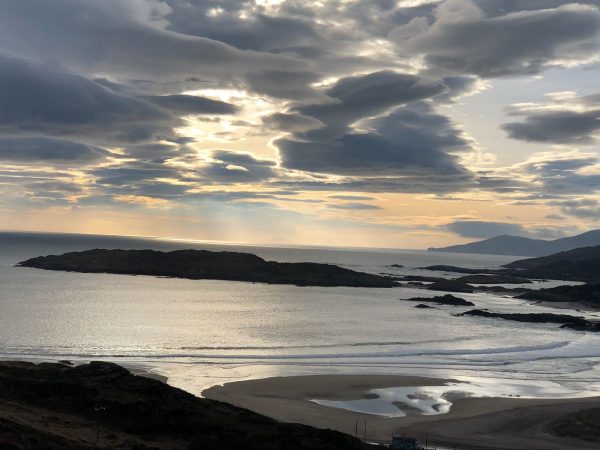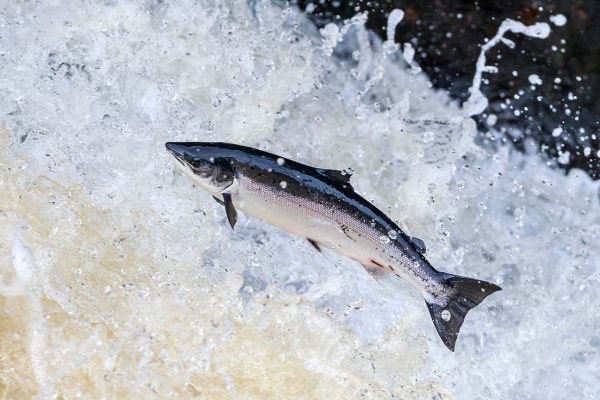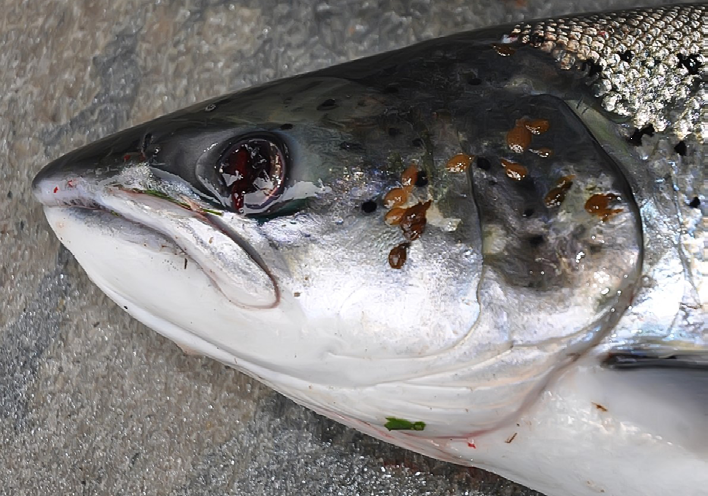Government / International Co-operation
Government approach and international co-operation are important aspects of national and international management of Atlantic salmon stocks.
SWIRL advocates the bringing under the aegis of one government department all those activities which impinge on environmental protection and the maintenance of biodiversity.

Juvenile Fish will not survive unless Government takes lead in preserving water quality and habitat diversity. Bio-diversity must be at cornerstone of future policy
The conservation of our wild Atlantic salmon is only one of the many challenges Ireland faces in protecting its biodiversity generally. There is a tendency to rely on each state agency and authority to look after its own patch without recognising sufficiently the overlapping and often competing interests involved. Current institutional arrangements split over at least four government departments and a multitude of agencies is inadequate to the task and needs substantial reform. In SWIRL’s opinion all agencies with responsibility for biodiversity protection need to be brought under the aegis of one government department and a clear mission spelled out for its operation.
The problem is well illustrated by the National Biodiversity Plan 2023-2030 compiled and published by the National Parks and Wildlife Service.
“By 2027, protection and restoration measures detailed in Ireland’s third RBMP will be implemented to ensure that our natural waters are sustainably managed, that freshwater resources are protected so that there is no further deterioration, and where required, Ireland’s rivers,
lakes and coastal water bodies are restored to at least good ecological status”.
Worthy enough objectives but there are no mechanisms in place across government to actually make it happen and each department pursues its own policy and management practices.
International engagement
SWIRL supports engagement with the North Atlantic Salmon Conservation Organisation with a focus on international action on salmon farming and research into by-catch and the implementation of mitigation measures.

International engagement through NASCO and ICES protects Atlantic salmon at sea allowing intergovernmental discussion and co-operation.
Through the NGO observer group at the North Atlantic Salmon Conservation Organisation (NASCO), SWIRL is part of an extensive network covering virtually all of the member countries of the Convention for the Conservation of Salmon in the North Atlantic (‘the Convention’). This gives SWIRL the opportunity to contribute to the work of NASCO, which can be a slow process, and of exchanging information with other conservation minded organisations.
Among the more important aspects of the work of NASCO from an Irish standpoint are:
- The continued treaty-based restrictions on the exploitation of salmon in the feeding grounds of Greenland and the Faro Islands;
- The co-ordination of multi-nation research about salmon, particularly in the marine environment (e.g. SALSEA);
- Efforts to minimise the impacts of salmon farming through the standards adopted in NASCO’s Williamsburg Resolution;
- The three year cycle of national implementation plans filed by governments with NASCO and the Annual Progress Reports on them give a degree of visibility to Irish salmon management that would otherwise be lacking;
- Vigilance on the issue of the by-catch of post smolts and maturing salmon in the massive pelagic fisheries in the North Atlantic.
- Illegal and unregulated fisheries for Atlantic salmon in international waters must be investigated.
From an Irish perspective the most urgent issues on that agenda are international action on salmon farming and research into by-catch and the design of mitigation measures.
Despite the frustrations of working within the framework of an inter-governmental organisation that moves at the glacial pace of international diplomacy SWIRL believes that it is worth the very considerable effort that is devoted to it by Irish officials from the Department of Communications, Climate Action and the Environment, Inland Fisheries Ireland and the Marine Institute.
Government approach and international co-operation are vitally important to managing Atlantic salmon stocks.





